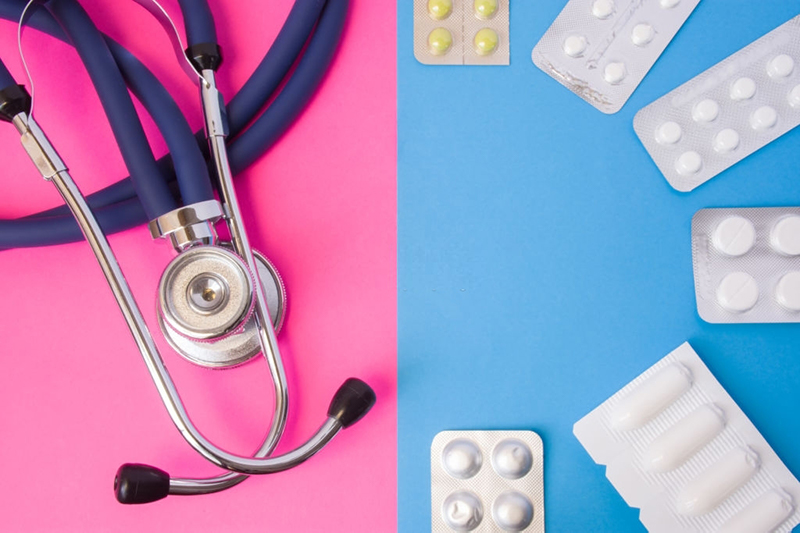Many people question if they may encounter adverse effects when taking probiotics for the first time. Probiotics, in general, have no negative side effects and are considered to be very safe vitamins. This in-depth evaluation will tell you everything you need to know.
The short answer is “no,” because probiotics have no known negative effects. Friendly bacteria supplements contain strains of bacteria that have been proved to function for, rather than against, the health of their hosts. probioticseverything.comprobiotic side effects
Some clients may be hesitant to take live bacteria, but you may reassure them that probiotic living cultures are naturally found in our stomachs and in a well-balanced diet that includes fermented foods (e.g. yoghurt or kefir). The majority of people will be able to take these without any visible side effects. probioticseverything.comprobiotic side effects
When taking prebiotics for the first time, people are more likely to observe immediate effects: read the section on prebiotics below for additional details. probioticseverything.comprobiotic side effects
Probiotics, with a few exceptions, are very safe for most individuals to ingest and can be used from infancy to old age. Probiotics are not suggested for people with serious medical disorders, those who are immunosuppressed, or those who have open wounds after major surgery unless they are under the supervision of a doctor. Additionally, women who are pregnant or breastfeeding should seek medical advice before using Saccharomyces boulardii supplements.
What does it mean to be normal?
As previously said, probiotic adverse effects are rarely recorded; however, it is always a good idea to tell your client to be aware of how new supplements, meals, or drugs make them feel. Some of your clients may have experienced initial side effects like bloating, increased flatulence, or changes in their bowel pattern. Because we all have different gut microbiomes, a few people may experience some digestive abnormalities when they first start taking a friendly bacteria supplement. If they have never taken a probiotic before and have a substantial imbalance of good and bad bacteria in their stomach, this is more likely (known as dysbiosis). Read the article Gut health – everything you need to know on the Probiotics Learning Lab to learn more about dysbiosis and gut health. These effects are normally modest and go away as the body adjusts to the introduction of beneficial bacteria. probioticseverything.comprobiotic side effects
When a customer suffers adverse effects, it’s possible that the strain in question isn’t right for that person’s health needs or microbiota. Always use strains that have been studied for the health issue you’re attempting to help.
Let’s take a look at some of the most often asked questions concerning probiotic living cultures and their potential negative effects. probioticseverything.comprobiotic side effects
Is it possible for probiotics to cause diarrhoea?
It’s rare, but some people may notice a change in their regular bowel pattern after starting to take a friendly bacteria supplement. The feces may become softer, and bowel motility may rise as a result. Even diarrhoea has been reported on occasion. It’s unclear why or how this happens in some people, but it’s assumed to be related to the disruption of the gut microbiome caused by introducing new bacteria through a probiotic supplement.
Is it possible for probiotics to cause constipation?
Constipation is not a common side effect of probiotics. In fact, folks with slow stools may discover that a probiotic can help them achieve more regular bowel movements. However, some probiotic strains, such as Saccharomyces boulardi, may reduce stool transit time if taken in greater dosages, so those who are prone to constipation may want to avoid them. There would be other strains of living cultures that would be more suitable for their needs in this scenario.
Can probiotics induce bloating or stomach pain?
When taking probiotics, stomach pain is not a common complaint. However, as your client’s gut microbiota changes to the addition of additional probiotic bacteria or yeast, bacterial fermentation may cause a change in gas production, which could lead to bloating, increased flatulence, and possibly stomach discomfort. probioticseverything.comprobiotic side effects
Overall, though side effects are uncommon, it’s prudent to first assess whether any symptoms your client is experiencing while taking probiotics could be caused by other things — new meals, medications, or other supplements – and the link to the probiotic could be coincidental.
How long do probiotic side effects last?
It is uncommon for people to encounter negative effects when taking probiotics, as previously stated. If side effects do develop, their length varies from person to person, but they should not last more than a few days. Consider the following: if symptoms persist for more than a few days, are severe, or you have concerns about an underlying health condition, tell your client to stop taking the probiotic and see their doctor. probioticseverything.comprobiotic side effects
Keep in mind that probiotics should never have any negative side effects. As a result, rather than presuming that any significant or troubling symptoms are due to the probiotics, always suggest them to consult their doctor. probioticseverything.com
Prebiotics
If your client complains of bloating or digestive discomfort after taking a friendly bacteria supplement, check to see if it contains a prebiotic.
Prebiotics provide food for probiotic bacteria, promoting the growth of beneficial bacteria in the stomach. This is a good thing, but it can cause some bloating and minor discomfort during the first few days of use, such as gas or wind. After a few days, these symptoms should go away and improve. A recent clinical trial found that any initial bloating and gas will go away, and that taking prebiotics will reduce flatulence symptoms over time.
The findings revealed that resident gut bacteria created less gas after two weeks, indicating that they had adapted and produced less gas, as well as that more of the gas produced was metabolized and absorbed. This resulted in less bloating and gas production, implying that regular prebiotic ingestion could help control intestinal gas metabolism; we just need to give our gut flora some time to adjust. probioticseverything.com
Dysbiosis and ‘die-off’ are two terms that come to mind while discussing dysbiosis.
Die-off is a term used in complementary medicine to describe the negative consequences of probiotic living cultures. These transient adverse effects are thought to be a sort of ‘Jarisch-Herxheimer Reaction,’ a phenomena first discovered by doctors while treating syphilis patients with antibiotics. Patients using antibiotics reported a wide range of symptoms, including flatulence, diarrhoea, bloating, headaches, skin eruptions, nausea, anxiety, or a ‘fluey feeling,’ such as chills and muscle aches, after starting antibiotic therapy.
Although this reaction is most commonly reported in the context of antimicrobial treatment for spirochaetal infections such as syphilis, the term ‘die-off’ has evolved in complementary healthcare to include the reaction that occurs infrequently in those with dysbiosis after receiving live culture supplementation.
The etiology of the phenomena is uncertain, however it is considered to be caused by pathogenic germs releasing bacterial endotoxins and microbial antigens into the physiological systems. Clients who use antimicrobial-action supplements, according to complementary healthcare practitioners, experience a similar phenomena known as ‘die-off.’ Toxins generated by dying pathogens (viruses, bacteria, parasites, candida yeasts, etc.) are thought to overload the body’s detoxification systems and cause unpleasant symptoms comparable to those described above, similar to the Jarisch-Herxheimer Reaction.
Friendly bacteria and yeast supplements have been shown to help displace pathogens in the gut, so it’s possible they’ll have a similar effect, especially in patients with severe dysbiosis and a high number of pathogens.







